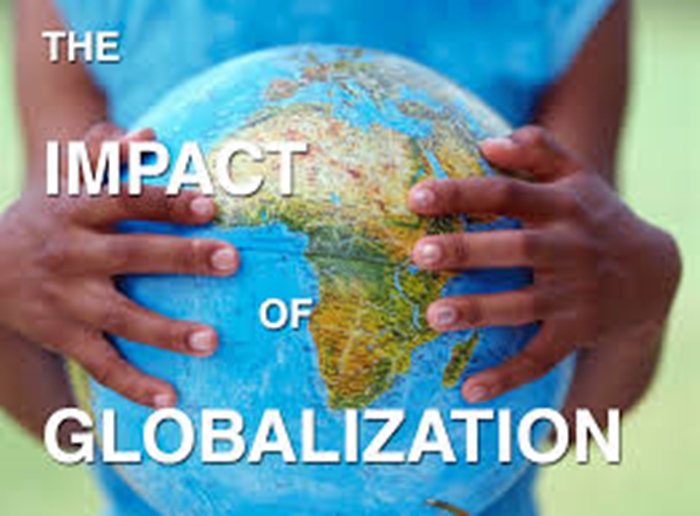In this article, we discussed the economic impact of globalization, meaning, the factors, the advantage and disadvantages.
Definition
Economic globalization is the increasing interdependence of economies around the world, which is characterized by the movement of goods, services, capital, technology, and information across borders. It’s one of the three main dimensions of globalization, along with political and cultural globalization.
Economic globalization has been driven by a number of factors, including:
Technological advances
The development of science and technology has reduced the cost of transportation and communication, which has made it easier to move goods and services across borders.
Market economic systems
The spread of market economic systems around the world has contributed to economic globalization.
Division of labor
The division of labor has become more cross-border, even penetrating down to the level of production chains within enterprises.
Information
The growing importance of information in the modern economy has been a driving force behind economic globalization.
Economic globalization can have many impacts, including:
Economic growth: Globalization can help economies grow, especially in developing countries. This can be due to increased trade, foreign investment, and access to resources and technology.
Economic growth is the increase in the value of goods and services produced by an economy over time. It’s usually measured as the percentage change in a country’s real gross domestic product (GDP) from one year to the next. Real GDP is GDP adjusted for inflation, which makes it a more useful measure than nominal GDP because it accounts for the effects of inflation on economic data
Lower prices: Increased competition can lead to lower prices for consumers. Lower production costs
Companies can optimize production and lower costs by specializing labor within countries or outsourcing production to other countries. For example, mobile phone companies may outsource production to China, where labor is inexpensive.
New jobs: Globalization can create new jobs as businesses and industries develop. globalization’s impact on jobs is not even across countries or industries. Some industries, like textile manufacturing in the United States, have been disrupted or collapsed due to increased international competition. Low-skilled workers may also face wage pressure and job insecurity due to competition from foreign countries.
Increased standard of living: It can lead to an increased standard of living.
More efficient use of resources: Global trade can allow wealthy countries to use their resources more efficiently.
Access to external markets: This can give countries access to external markets and capital.
Technology transfer: Globalization can lead to the transfer of technology and innovation, which can enhance productivity and efficiency.
Human capital development: It can help develop human capital.
Economic globalization can have many advantages, including:
Economic growth
Globalization can lead to economic growth in countries by making more products available at lower prices.
Increased competition
Globalization can increase competition, which can be beneficial to the entire system.
Specialization
Globalization can allow countries to specialize in producing goods where they have a comparative advantage.
Improved working conditions
It can improve working conditions and the quality of management in firms.
Reduced gender wage discrimination
It will also help to reduce gender wage discrimination and create new opportunities for women.
Lower inflation
This can help reduce high inflation rates, giving consumers more value for their money.
Increased access to goods
These can make goods more accessible to people by allowing companies to find lower-cost ways to produce their products.
Economies of scale
This can improve a company’s economies of scale by allowing goods to be manufactured in more places worldwide.
Cultural exchange
This can lead to cultural exchange when one culture influences another through its ideas, values, and customs.
Economic globalization has some disadvantages, including:
Economic inequality: It can lead to unequal economic growth and income inequality.
Job displacement: This can cause job displacement and local job loss.
Exploitation: It can lead to the exploitation of cheaper labor markets and foreign workers.
Environmental degradation: It can lead to environmental degradation.
Loss of cultural identity: Globalization can lead to a loss of cultural identity.
Financial instability: Financial globalization can lead to financial instability, volatility, and crises.
Vulnerability to external shocks: Financial globalization can make a country vulnerable to external shocks.
Reduced corporate accountability: This can lead to reduced corporate accountability.
Harm to small local economies: Globalization can harm small local economies.
Capital flight: It can also lead to capital flight.
CONCLUSION
Regardless of the disadvantages, globalization is here to stay. The result is a minor, more connected world. Socially, globalization has facilitated the exchange of ideas and cultures, contributing to a world view in which people are more open and tolerant of one another,


